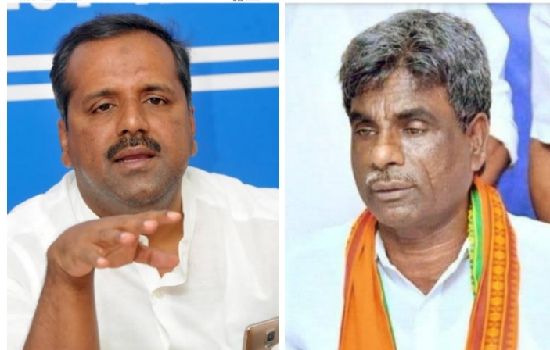New Delhi, Mar 12: A PIL was moved in the Delhi High Court on Thursday seeking directions to the Centre to take appropriate steps for stopping religious conversion of socially and economically downtrodden people, particularly of the Scheduled Caste/Scheduled Tribe community.
The plea claims that the government has done nothing to stop religious conversions.
The plea is listed before a bench of Chief Justice D N Patel and Justice C Hari Shankar on Friday.
The petition, by BJP leader and lawyer Ashwini Kumar Upadhyay, alleges that many individuals, NGOs and institutions are converting downtrodden persons by "intimidating, threatening, luring by monetary benefits and by other acts, including miracle healing, black magic and more".
"Many individuals/organizations have started conversions of SC/STs in rural areas and the situation is very alarming. The mass religious conversion of the socially economically downtrodden men, women and children, and, in particular of the scheduled caste and scheduled tribe community, is on the rise in the last 20 years," the petition claims.
It further claims as per the 2011 census, Hindus constitute 79 per cent of the population down from 86 per cent in 2001 and if no action is taken "Hindus will become minority in India".
Upadhyay suggested enacting of a law to prevent conversions by force or deceit and to award jail term for any violation.
"Additionally, the State may empower the National Human Rights Commission to deal with the affairs of religious groups and analyse religious discrimination among them," he suggests.
Apart from seeking steps to prevent religious conversions by force, threats or deceit, the petition also wants directions prohibiting religious gatherings "intended to mislead people by making false and untenable claims" to lure ignorant masses to join a particular faith or religious group.






Comments
First of all we should know what is religion and what is its purpose.
Religion should be scientific to acceptance. It should not be blind tale.
Religion is a set of divine commands how to lead the life to be successful here and also it should lead to success if there is a life after the death.
If it can assure, we should not worry to accept. Such religion can not be more than 1. Because we all believe 1 Supreme God who has the control over every creature. If we understand and accept it, then we should accept 1 and only religion which is the real religion.
You can not force anybody to accept 2+2=5.
If religion can prove its doctrine to be not contradicting the science then no worry to accept it.
There should be open debate of all religions then the truth will come in black and white clearly.
Leave the panel to decide which is the right one. Once proved, brave people will accept it without fear.
No need any law. If you have good product why do you worry to sell it.
Add new comment